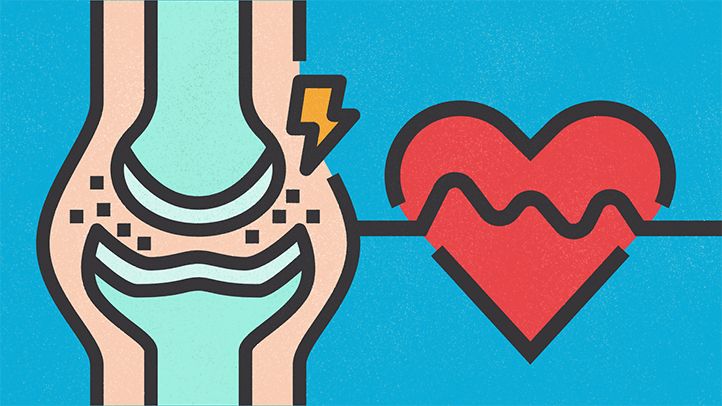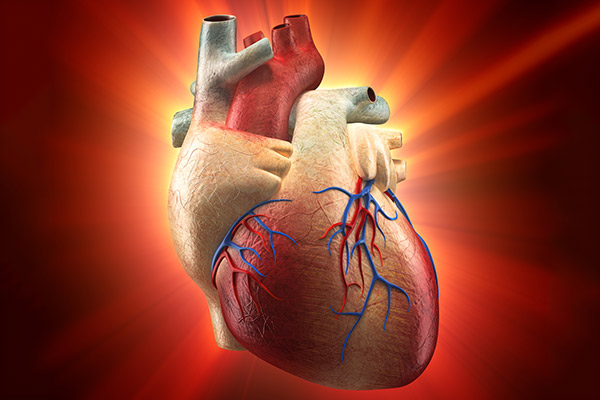RA can also lead to complications in other body parts, including the heart. This article will discuss the relationship between RA and heart health and what people with RA can do to protect their cardiovascular health.
RA and Cardiovascular Disease
RA is associated with an increased risk of cardiovascular disease, including heart attack and stroke. People with RA have a two to three times higher risk of developing cardiovascular disease than those without RA. This increased risk is due to several factors, including inflammation, using certain RA medications, and lifestyle factors.
Inflammation and Cardiovascular Disease
Inflammation is a key hallmark of RA and is thought to contribute to the increased risk of cardiovascular disease in people with RA. Inflammation can damage the blood vessel's inner lining, leading to plaque buildup. Plaque can narrow blood vessels, increasing the risk of heart attack and stroke. Additionally, inflammation can trigger the formation of blood clots, which can also increase the risk of cardiovascular disease.
RA Medications and Cardiovascular Risk
Some medications used to treat RA, such as nonsteroidal anti-inflammatory drugs (NSAIDs) and corticosteroids, have been linked to an increased risk of cardiovascular disease. Additionally, some biological medications used to treat RA, such as tumor necrosis factor (TNF) inhibitors, have also been associated with an increased risk of cardiovascular disease. It is important to talk to your doctor about each medication's potential risks and benefits and to closely monitor your heart health while taking these medications.

Lifestyle Factors and Cardiovascular Risk
In addition to RA and RA medications, lifestyle factors can also increase the risk of cardiovascular disease in people with RA. Some lifestyle factors to consider include:
- Smoking: Smoking is a major risk factor for cardiovascular disease and should be avoided by people with RA.
- Poor diet: A diet high in saturated fat, trans fat, and salt can increase the risk of cardiovascular disease and should be avoided.
- Physical inactivity: Lack of physical activity can increase the risk of cardiovascular disease and should be avoided.
- Stress: Chronic stress can increase inflammation and raise the risk of cardiovascular disease.
Protecting Your Heart Health
To reduce the risk of cardiovascular disease in people with RA, it is important to focus on overall heart health. Some tips to help protect your heart health include:
- Eating a healthy diet: A diet rich in fruits, vegetables, whole grains, and lean protein can help reduce the risk of cardiovascular disease.
- Exercising regularly: Regular physical activity can help reduce the risk of cardiovascular disease and improve overall health.
- Quitting smoking: Quitting smoking can significantly reduce the risk of cardiovascular disease.
- Managing stress: Finding healthy ways to manage stress, such as exercise, mindfulness, or therapy, can help reduce the risk of cardiovascular disease.
Treating RA and Cardiovascular Disease
Treating both RA and cardiovascular disease requires a multidisciplinary approach. This may involve working with a rheumatologist to manage RA and a cardiologist to manage cardiovascular disease. Treatment for RA may include medications, such as nonsteroidal anti-inflammatory drugs (NSAIDs) and biological medications, and lifestyle changes, such as exercise and stress management. Treatment for cardiovascular disease may include medications, such as statins and anti-hypertensives, and lifestyle changes, such as diet and exercise.

It is important to closely monitor both RA and cardiovascular disease and to communicate with your rheumatologist and cardiologist to ensure that treatment is tailored to your needs. In some cases, this may involve adjusting to RA or cardiovascular disease treatment to minimize potential interactions between the two.
The Importance of Monitoring Heart Health
People with RA should have regular check-ups with their healthcare provider to monitor for cardiovascular disease and other RA-related complications. This may include monitoring for risk factors, such as high blood pressure and high cholesterol, and undergoing tests, such as an electrocardiogram (ECG) or echocardiogram, to evaluate heart health. If you have RA and are concerned about your heart health, talk to your doctor about your risk and what you can do to protect your heart. By working with your healthcare provider, you can take steps to manage both RA and cardiovascular disease and improve your overall health.
Conclusion
Rheumatoid arthritis is associated with an increased risk of cardiovascular disease, including heart attack and stroke. People with RA can reduce their risk by eating a healthy diet, exercising regularly, quitting smoking, and managing stress. By taking these steps, people with RA can improve their overall heart health and reduce the risk of cardiovascular disease.







